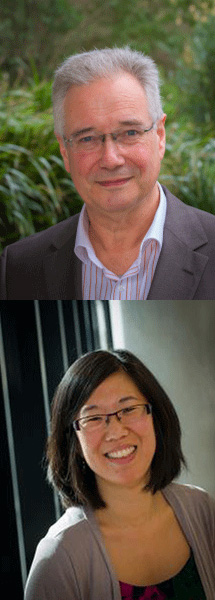ARC grants ADI over half a million dollars for new research
Research news
ADI researchers celebrate success in the Australian Research Council (ARC) 2016 Discovery round.
Several Alfred Deakin Institute for Citizenship and Globalisation researchers have been awarded over half a million dollars in prestigious Federal Government research funding.
Professor Christoph Antons from Deakin’s School of Law was awarded $144,178 for a Discovery Project independently assessing the development of the Indonesian intellectual property system over the past 30 years.
While Dr Jessica Walton from ADI's Diversity and Identity stream received $367,979 for a Discovery Early Career Researcher Award (DECRA).
In addition, ADI's Associate Professor Andrew Singleton, Dr Anna Halafoff and Dr Tiffany Shellam were members of successful projects led externally to Deakin.
Dr Walton's project will examine how Australian and Korean children students navigate racial, ethnic and cultural differences through international school partnerships and the extent to which these partnerships encourage positive intercultural contact in their everyday lives.
The Director of the Institute Professor Fethi Mansouri congratulated the researchers.
"Only 18% of Discovery Projects submitted were funded while only 16% of DECRA applications were approved," he said.
"They are extremely competitive.
"The Institute aims to create an environment where researchers can pursue research which addresses emerging societal challenges and these two projects demonstrate how this works."
This will be Professor Antons’ sixth Discovery and builds on a lifetime of work looking at Intellectual Property law and its application in Asia, in particular, one of Australia’s largest trading partners, Indonesia.
"In the 1980s when I started working on it, it was a combination people didn’t look at," he said.
"I took notice of IP issues in Indonesia when Sir Bob Geldof complained to the Indonesian Government that the Live Aid concert recordings were being pirated in Indonesia, impacting the proceeds destined for developing countries."
"The Indonesian Government had to act on international pressure from trading partners at the time and started to reform the IP system."
This response coupled with Indonesia’s move to democracy had made court rulings and information about IP applications more accessible.
“When I started looking at Indonesia there was little case reporting and one had to approach law firms whether they were willing to share some of their case material.” he said.
"Now, much of the information outside of Indonesia comes from industry reports or is written by business analysts and consultants, who work for companies that are stakeholders in the system. However, unbiased academic analysis still remains very important."
Professor Antons said his research project would address this gap by providing Australian businesses and the government with an independent assessment of the application of Intellectual Property laws and the interaction of the IP system with competition law in Indonesia.
Another contribution of Professor Antons’ project would be insight into the paths countries follow as they transition from an emerging economy to a developed economy.
“In the debates about the application of Intellectual Property law in emerging economies there is the idea that when countries reach technological maturity they also reach a tipping point and start to seriously enforce intellectual property laws and build a strong system in accordance with international standards,” he explained.
“My argument is that this idea is affected by historical context which impacts a country’s ability to experiment with IP laws and by political bargaining processes that create many idiosyncratic features.”
“I also argue that big middle income countries such as Indonesia, China and India, because of their sheer size and diversity, have their own trajectory, all of which means they are likely to differ from standard models.”
For Dr Walton the awarding of the DECRA was the culmination of years of work, firstly obtaining her PhD, then building a research profile by working with other researchers on their projects, completing her own project on South Korean ‘multiculturalism’ (Deakin Central Research Grant 2015), getting published and finally now heading up her own three-year research project.
"You spend your whole career building up to this in the hope of getting the rare opportunity to do a project like this," she said.
"I spent so many hours writing that application, reviewing it, making sure it was just how I wanted it and finally, energised by chocolate chip cookies baked by my partner that evening, I submitted it at 3 am on the day it was due."
"I feel so privileged and so humbled. I want to thank everyone who believed in me, including my supervisors, team members, and friends and colleagues at the Alfred Deakin Institute".
Dr Walton said the work she does in schools focused on social equity and addressing racism stems back to when she was six years old when she first became aware of her racial difference through racism as a second grade student, when she said, "I became 'Asian'".
"I have always worked through hardship by making something socially productive come from it and that experience and the trauma it created back then has kept me going to do research that contributes to a more socially just world."
Dr Walton said international school partnerships and international education aimed to prepare students to be active global citizens in ways that positively impact on their lives and the world around them.
"As my experience showed, these issues need to be engaged at a young age."
"This project aims to understand how primary school-aged students in Australia and South Korea navigate ‘difference’ in their respective socio-cultural contexts and the extent to which these international school partnerships can facilitate equitable change", she said.
"We need to absolutely build respect and empathy but it also needs to go beyond this interpersonal level if we are to address systemic social inequities."
Share this story

Key Fact
Professor Christoph Antons and Dr Jessica Walton.
